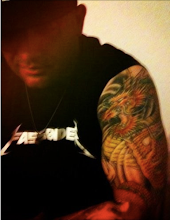
Someone recently said to me: You're a strategist that does stand up comedy? That's weird.
Here's why it's not weird to me:
As I looked over creative entries at the last several advertising award shows, I couldn't ignore the fact that a huge percentage of the best work utilized humor. I also couldn't stop thinking - What do strategists know about comedy? Do they know WHY we need humor? Do they know what makes one thing funny and another not? By not knowing these things, are they less helpful to the creative process?
David Ogilvy - the ad man most famous for once dismissing comedy, later wrote "I have a theory that the best ads come from personal experience. Some of the good ones I have done have really come out of the real experience of my life, and somehow this has come over as true and valid and persuasive."
His statement seems to parallel Stanislavs insight: "That which is most personal is most universal.", but in advertising we preface our personal feelings with an apology: "It's just a focus group of one, but i think..."
Ogilvy made his anti-comedy quote BEFORE Lenny Bruce changed comedy. Because of Lenny Bruce, Richard Pryor and George Carlin comedy has become "an intense investigation into what it means to be a human being."
Personal truth + universal relevance = modern day comedy. As a strategist, how could you not want to learn EVERYTHING about how or why it works?
Because most strategists have their heads buried in books on social psychology and neuroscience, they tend make things complicated, rather than simple. Simple takes more work from a strategist, complicated leaves more work for a creative. They turn a tricky problem about how to sell a product into an impossibly tight uninspiring box about how the brain works.
That reminds me of my grandfather complaining to my mouthy uncle: "If I ask you what time it is, don't tell me how to build a watch! Just tell me the God damn time!"
I have committed to doing stand up 4 nights/week. 4 nights a week I am standing in front of a focus group of 50 to 200 people and watching how the audience responds to every single comics take on his/her personal life and what JUST happened in the news THAT DAY. How often do most strategists leave the office? How often do they speak to your target audience?
Even if you're not using humor - comedy is THE most disruptive form of story-telling...and the rules absolutely still apply.
If you still don't believe that comedy is filled with deep true insights that often come from an unexpected angle, see below:
Louis CK - Everything is amazing & Nobodys happy:

